Questionmy puppy is 13 weeks and he will listen to me while we are in the house but when he is in the garden he doesnt. he often chews plants and tries to eat stones and when i try to tell him no or get the thing he is chewing he just runs away and wont listen. even when i have treats. also how do i get him 2 walk nicely on a lead?
Answer Dogs fail when we ask too much of them, too fast. Dogs don't generalize new behaviors, meaning that while they may be reliable listening to you in one location, they may be completely confused when you ask them to display learned behaviors in a different location. Add that to all the interesting smells and distractions available in a garden, and their responsiveness to you will be very unreliable.
Work on obedience skills in the house, where the dog is most reliable. Keep the training sessions short and fun, 15-20 minutes a day is usually adequate. I would especially work on cues such as "Stay", "Leave-it", "Come", and "Drop it". Once the dog obeys these cues well in the house, you can start training these cues outside. Make sure you have the leash on the dog, you don't want him to be able to run off and play in the garden, ignoring you. Remember that dogs don't generalize new behaviors right away, so you must lower your expectations at first. Sometimes this means teaching the obedience cue all over again, as if it has never been taught to the dog before. Build up his reliability through these training sessions outside, on-leash.
Once your puppy responds well on-leash outside, move the training sessions to on-leash in the garden. If you can get your dog to respond when asking him to leave a treat or toy on cue, rocks shouldn't be as much of an issue. You can even use "Leave-it" when he goes near the garden. You can also have him "Stay" while you work in the garden, rewarding often with treats. Use "Drop It" if he picks up something he isn't supposed to. When he is reliable on-leash in the garden, attach a long line or long piece of rope to his collar and give him more room to roam as he starts listening more reliably. This way, he can't run off and play games, you can always grab the end of the long line and reel him back in.
In addition to reinforcing basic obedience cues, you can use certain pet store products to help curb his behavior. Please keep in mind that these products, are called "training aids" for good reason: they are only effective when used in addition to training. Bitter sprays, such as Bitter Apple and other similar products, can be used to make things taste unpleasant to the dog, therefore discouraging him to chew on the sprayed object. You will have to re-apply spray to the rocks (or other forbidden objects) daily, for a week or two minimum.This does not keep the puppy out of the garden, it simply makes things taste unpleasant. Other products, such as Repel, give the entire area an unpleasant smell to animals (we can't smell it) and are sold to repel animals from the area where it is applied. This may be an option for you if you would prefer the dog to not be in the garden at all. Both of these types of products are very effective for some dogs, while ineffective for others. Also, if you are growing food products in your garden make sure to check the product labels to ensure they are safe to use.
The key to teaching your dog to walk on the leash without pulling, is to make sure he doesn't get rewarded for pulling. Going for a walk is a huge reward for a dog. You can make sure he doesn't get rewarded for pulling you by coming to an abrupt stop as soon as the dog puts tension on the leash. He may continue to pull, but will eventually take tension off the leash. Let him figure this part out on his own, and as soon as he backs up, sits down, or does anything to relieve the tension reward and start walking again.
If you need help training the basic obedience cues or loose leash walking, I highly recommend hiring a qualified trainer in your area that uses reward-based training. There are also some very helpful books and video series' on the market by authors such as Karen Pryor and Ian Dunbar. I cannot stress enough that whatever training you do, look for titles like "positive" or "reward-based" to keep you on the right track. Let me know if you have any other questions. Good luck with your puppy!

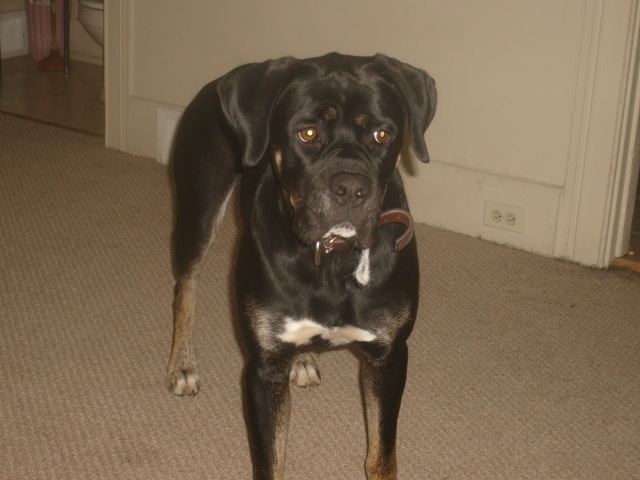 What is my dog
Question
This is the mystery do
a year ago a 11month ol
What is my dog
Question
This is the mystery do
a year ago a 11month ol
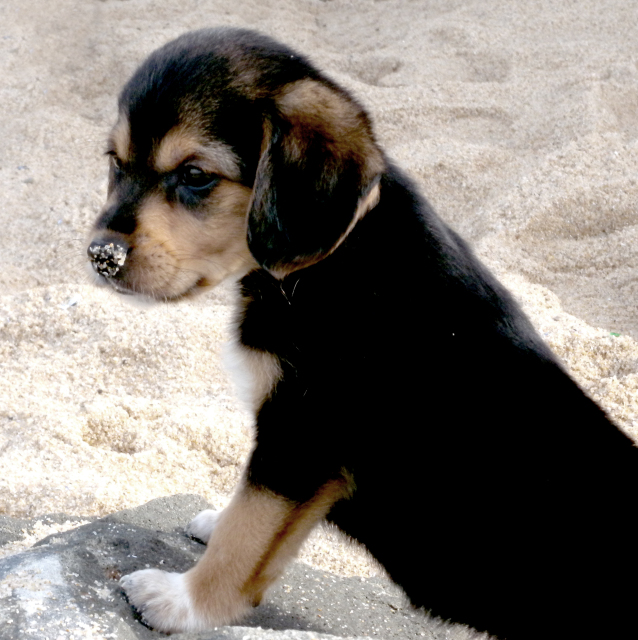 Bedwetting and poop eating
QuestionQUESTION: We have a 12 week old beagle cross wh
Bedwetting and poop eating
QuestionQUESTION: We have a 12 week old beagle cross wh
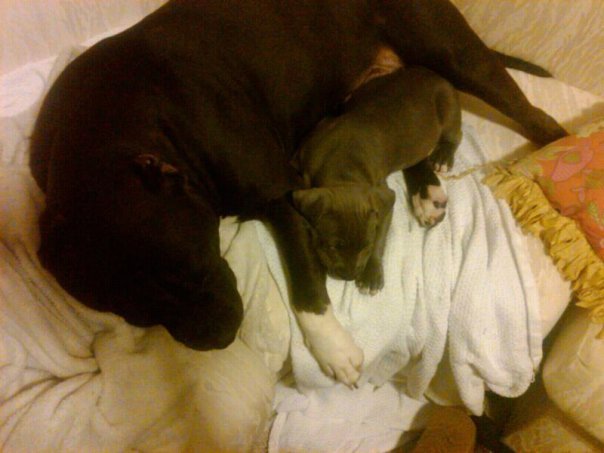 Dog aggression towards puppy
Question
The father and his pup
My older dog is an Amer
Dog aggression towards puppy
Question
The father and his pup
My older dog is an Amer
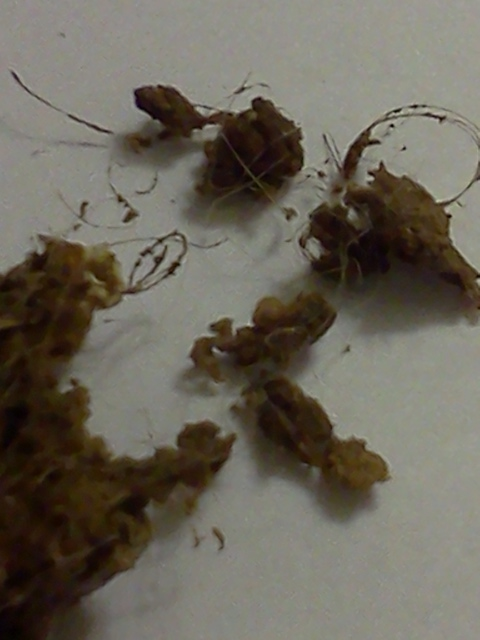 Dog Worms
QuestionDog Poo
Dog Poo
QUESTION: Ive got
Dog Worms
QuestionDog Poo
Dog Poo
QUESTION: Ive got
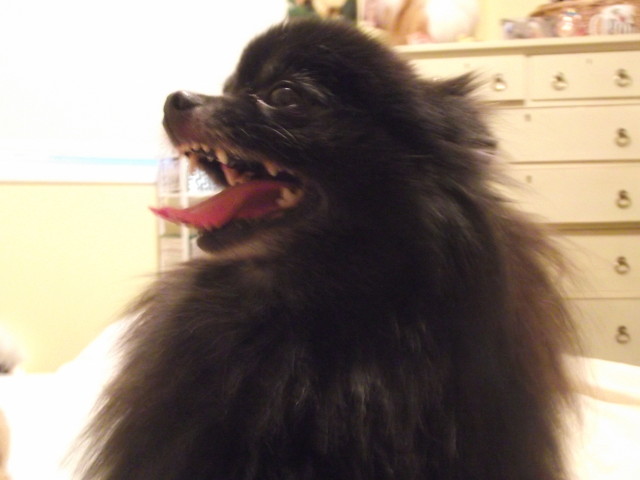 Pomeranian digging in beds and clothes
Question
Charlie my Pomeranian
I have a Pomeran
Pomeranian digging in beds and clothes
Question
Charlie my Pomeranian
I have a Pomeran